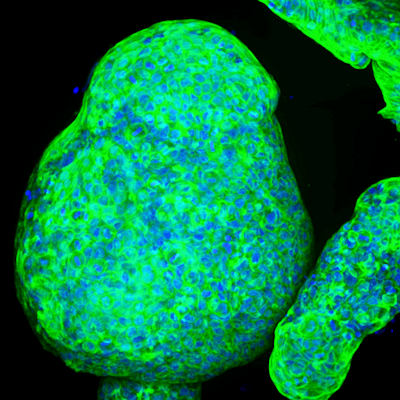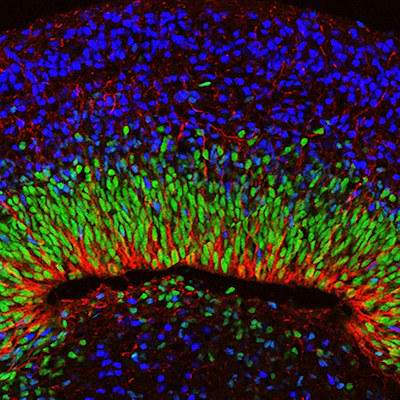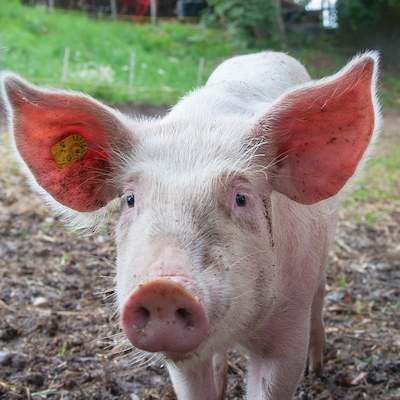July 7, 2022 -- Researchers from Ottawa, Ontario have discovered which cells cause tumors in patients with tuberous sclerosis complex (TSC) by creating genetically engineered kidney organoids, or “mini kidneys” grown from human tissue.
Kidney disease is the leading cause of death in TSC patients but there were no models to study how the disease affects the organ so Dr. Bill Stanford, senior scientist at the Ottawa Hospital and professor at the University of Ottawa, led a team in creating one (Cell Reports, July 5, 2022, Vol. 40:1).
TSC is caused by mutations in the TSC1 or TSC2 gene and arise spontaneously during development or early life rather than being inherited, which makes TSC difficult to study. Researchers often use animals to study human diseases, but in this case no animal model fully captured TSC's effect on the kidneys. To remedy this, Stanford and colleagues grew 3D kidney tissue in the lab from human stem cells that were genetically engineered to have a TSC1 or TSC2 mutation.
The miniature, simplified versions of kidneys had a genetic profile similar to TSC tumors. The researchers then took single cells from the kidney organoids and injected them into the kidneys of mice, where they grew into human TSC tumors. The research showed that Schwann Cell Precursors are where TSC tumors start in the kidney and this single mutation affects the development of many different kinds of cells, which explains the variation in kidney tumors even within the same person.
The results mean new therapies can be developed to target TSC, the researchers said.
Copyright © 2022 scienceboard.net









